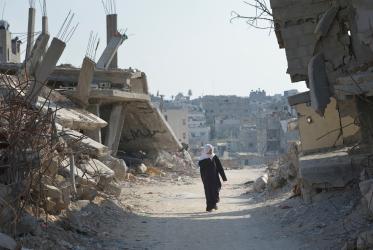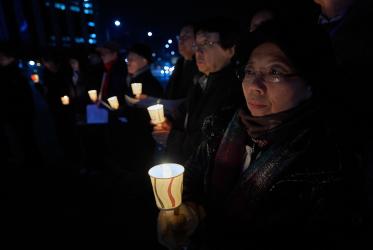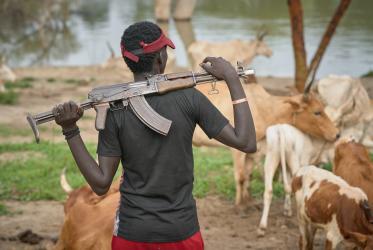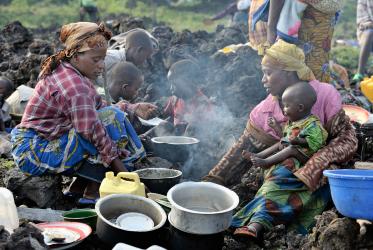Displaying 1 - 20 of 63
30 December 2023
WCC offers input to the UN New Agenda for Peace
13 April 2023
WCC calls for an end to violence in West Bank
23 February 2023
Calls grow globally for peace and accountability in South Sudan
24 September 2021
Young Africans are eager to grapple with challenges
09 January 2020















